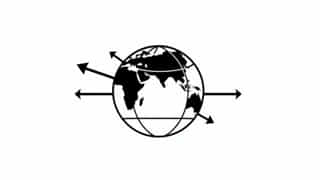Define Expansionism In History
Expansionism in history refers to the policy or practice by which a nation seeks to increase its size, influence, or power by extending its territory or control over other lands and peoples. This concept has appeared in various forms throughout different eras, shaping the development of empires, altering global power dynamics, and often resulting in both conflict and cultural exchange. Understanding expansionism is essential to comprehending how modern nations evolved and how geopolitical boundaries came to be. From ancient conquests to modern colonization, expansionism has left a deep and lasting impact on world history.
Definition and Core Concept of Expansionism
What Is Expansionism?
Expansionism is a political and military ideology centered on the growth of a nation’s power through territorial acquisition, economic dominance, or cultural influence. It typically involves one nation asserting control over areas outside its original borders. This expansion can be accomplished through direct conquest, colonization, treaties, or economic pressure.
Unlike simple exploration or migration, expansionism implies deliberate state action and is usually connected to a broader national goal such as resource acquisition, strategic advantage, or ideological spread. The term is often used in relation to imperialism and colonialism, though it can apply to more subtle forms of influence as well.
Historical Examples of Expansionism
Ancient Empires
- Roman Empire: One of the most prominent examples, Rome expanded its territory across Europe, North Africa, and parts of Asia, motivated by strategic control and the spread of Roman culture and governance.
- Persian Empire: Under rulers like Cyrus the Great and Darius I, Persia expanded through a blend of military conquest and respectful integration of different cultures.
- Alexander the Great: His campaigns spread Greek culture and influence across the known world, blending Eastern and Western traditions in what became known as Hellenism.
European Colonial Expansion
Between the 15th and 19th centuries, European powers embarked on overseas expansion. Motivated by trade, religion, and strategic control, countries like Spain, Portugal, Britain, France, and the Netherlands established vast colonial empires.
- Spanish Empire: Expanded across the Americas, bringing Catholicism and European institutions to indigenous civilizations.
- British Empire: By the 19th century, Britain controlled territories on every continent, guided by the belief in a civilizing mission and economic dominance.
- French Empire: Spread into Africa and Asia, promoting the French language and cultural ideals as part of their expansionist goals.
19th and 20th Century Expansionism
The 19th century saw a resurgence of expansionism through concepts like ‘Manifest Destiny’ in the United States, which justified westward territorial growth. Meanwhile, powers like Russia and Japan engaged in imperial conquests of their own.
In the 20th century, expansionist ideologies took a more aggressive turn, especially during World War II. Nazi Germany sought Lebensraum or living space in Eastern Europe, while Imperial Japan aimed to dominate Asia and the Pacific. These actions led to global conflict and reshaped world politics.
Motivations Behind Expansionism
Economic Interests
Access to resources, new markets, and trade routes has always been a primary driver of expansion. Empires have historically sought lands rich in minerals, fertile soil, or strategic trade locations. Colonies often provided raw materials for the home country and served as markets for manufactured goods.
Strategic and Military Goals
Securing borders, establishing military bases, and gaining strategic control of geographic chokepoints (like sea routes or mountain passes) have often motivated territorial expansion. Control of key territories helped empires defend themselves and exert influence over neighboring regions.
Religious and Ideological Justifications
Many expansionist efforts have been supported by religious or ideological beliefs. European colonization was often justified by the desire to convert indigenous populations to Christianity. In other cases, expansion was framed as a moral duty, such as spreading civilization or democracy.
National Prestige and Power
Expansion was also a symbol of national strength. Nations often pursued imperial ambitions to demonstrate their dominance on the global stage. This desire for prestige led to fierce rivalries, particularly during the Scramble for Africa and the age of empire.
Consequences of Expansionism
Positive Impacts
- Spread of technology and infrastructure, such as roads, railways, and telegraphs.
- Cultural exchange that led to the blending of ideas, art, and cuisine.
- In some regions, development of modern legal and administrative systems.
Negative Impacts
- Exploitation and oppression of indigenous populations.
- Destruction of local cultures, traditions, and languages.
- Economic extraction that benefited colonial powers at the expense of colonies.
- Creation of long-term geopolitical tensions and conflicts.
While expansionism brought development to some areas, it often came at a high cost to native societies. Many former colonies still grapple with the social and economic legacies of their colonial pasts.
Modern Interpretations and Criticism
Post-Colonial Perspectives
In recent decades, scholars have critically examined expansionism, highlighting its role in fostering inequality, racism, and cultural hegemony. Post-colonial theory has brought to light the voices and experiences of colonized peoples, challenging the notion that expansion was a purely civilizing force.
Neo-Expansionism in Global Politics
Though traditional territorial expansion is rare today, some argue that economic and political expansionism still exists in the form of global capitalism, multinational corporations, and military alliances. Modern powers may exert influence not through direct colonization but through economic leverage, military presence, or digital dominance.
Expansionism in history has been a powerful force in shaping nations, borders, and ideologies. Whether through conquest, colonization, or cultural influence, expansionist policies have defined the rise and fall of empires. While expansionism often led to innovation and cultural blending, it also caused exploitation and conflict. Understanding expansionism allows us to critically evaluate both its historical legacy and its ongoing impact in the modern world. As we study global history, the concept of expansionism remains essential to understanding how power is pursued, maintained, and challenged.
